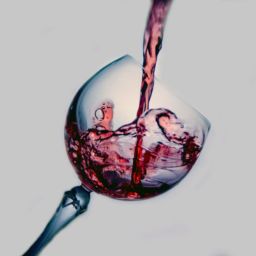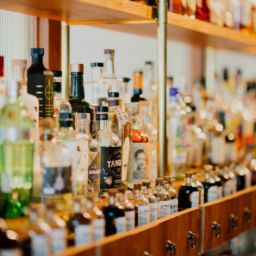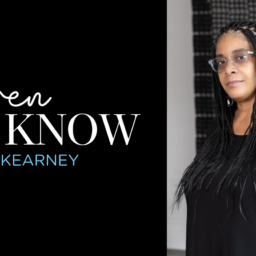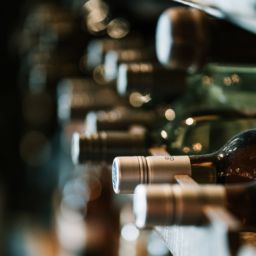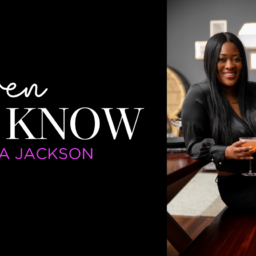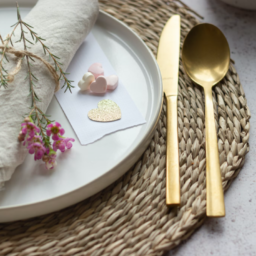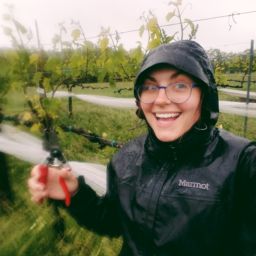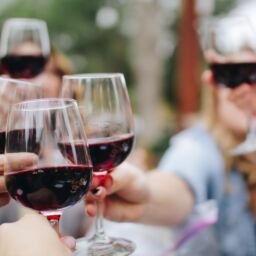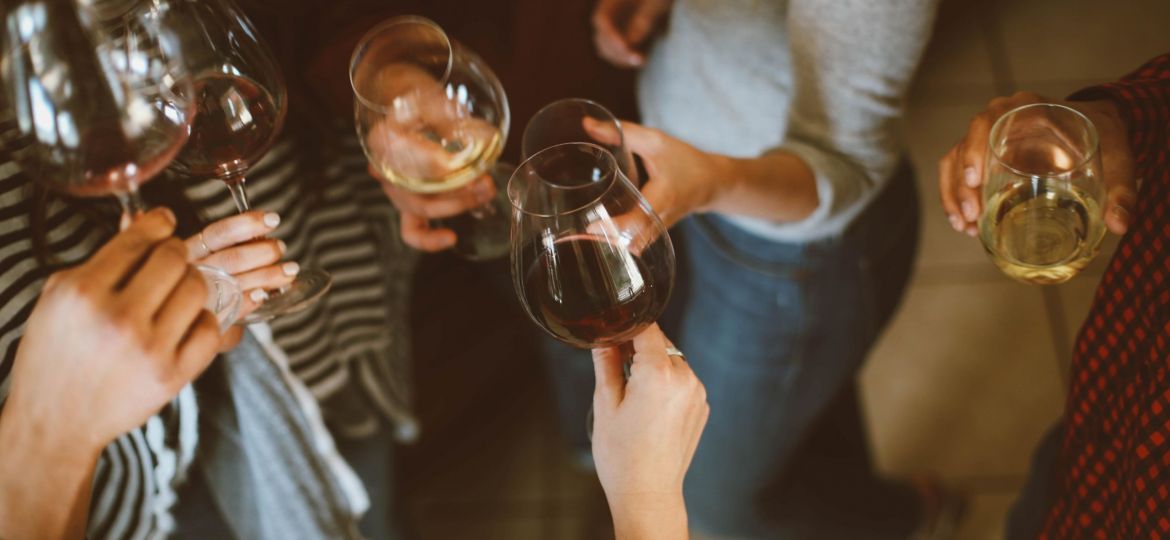
Sober curious? Sick of the “mommy juice” culture? Or maybe you just don’t like the way you feel after an extra glass of wine to take the edge off the day. You’re not alone.
According to a study published in the Journal of the American Medical Association in September of 2020, alcohol consumption increased 14% over the previous year for all adults. For women, binge drinking went up to 41%. However, many women have also chosen to get sober during this time, and others have worked to stay that way.
We spoke with five local women about their relationship with alcohol, the best and most challenging parts of not drinking, and ultimately what drove their decision to quit.
My “sober curious” journey started in 2013. Every year since, I’ve taken breaks from alcohol. In August 2020, three months after my dad died, I set a four-month goal and surpassed that. Since then, I’ve drank on rare occasions. My latest alcohol-free stretch is 70 days.
I usually do the counterintuitive thing —which is to stop during periods of grief, loss, or high stress, so I can deal with the hard things straight-on. But I’ll never forget the night a few years ago, when my daughter and I were sitting on the couch, watching TV. I was drinking a glass of wine and she said, “Mom, I don’t like the way your eyes look when you drink wine.”
It caught me off guard, and it took me a minute to get what she was saying: Even at her age, she could sense that an invisible window shade was being pulled over my eyes, that I was retreating from being fully present, no matter how subtly.
Mainly, though, I stop because too much alcohol dulls my sparkle. Drinking isn’t a rebellious act in today’s society, but not drinking is.
When I take these breaks, I sleep so much better. I feel like I can calmly and competently handle most life stressors. I feel less inhibited, because I’m never thinking, “I’m under the influence – I should check myself!” Earlier this year, a local musician in his 30s randomly told me I have “Big D*** Energy.” It made me laugh, but there’s something to that “sparkle” thing. People notice.
The most difficult part is playing ping-pong in my brain sometimes: Should I go ahead and have a couple drinks with these friends at happy hour, or just get the cranberry and soda with a lime? I find that when I’m with the right people, I laugh just as hard, no matter what’s in my glass. Oh, and the idea that the weight just melts off? That’s not true if you replace your drinks with butterscotch Dilly Bars. Those things have a ridiculously high number of calories.
The best part is waking up clear and refreshed. “Hangxiety” sucks. But the very best part? Having a finely tuned, state-of-the-art bullsh** detector, which means I can much more effectively recuse myself from people and situations that aren’t in line with my values. Maybe that just comes with age, though.
Amanda, 50
I stopped drinking on Jun 29, 2010. My life had become unmanageable. I couldn’t control my drinking, and I was finally able to be honest about that with myself.
When I drank, I had no control over how a night would unfold, but also, I deeply loathed myself. I really did. Getting sober meant I got to feel all the feelings I’d been stuffing down and ignoring for years. I couldn’t drink them away anymore. So I was a bit of a delicate flower early on. I still am! But in the last eleven years, I’ve learned and developed tools that help me deal with my anxiety—healthy tools like drinking water, walking the dog (*highly recommend), going to bed early, and taking deep breaths. The more I practice them, the more these tools help me. They’re like muscles; they like to flex. When I first got sober my life was really small. I lived with roommates in a small apartment, had a survival job, called myself a writer but wasn’t writing, and was as single as the day is long. Today I have a husband, a daughter, a dog, a home, and work that I love. Life hasn’t been without its challenges, but I have a support system of like-minded sober women who have my back. My life isn’t small anymore. It’s rich and full, and I see it and feel it and am awake to it.
These days, my most difficult parts have more to do with what some people refer to as emotional sobriety. Dealing with my feelings can still be very challenging. Am I bottling something up then raging at another driver on the road, or worse, losing my temper with my daughter or nagging my husband? Sometimes, I still act like a teenager, instead of like an adult. It’s a major bummer. But the best part is getting more and more comfortable in my own skin and shedding old stories that no longer serve me (“I’m not enough”; ‘I’m so stupid”; “I don’t deserve x, y or z”) so I can move through the world just as I am, no more, no less.
Maura, 41
I’ll first note that I am not in recovery from alcohol addiction. I’m a non-drinker by choice and I speak from my own unique experience.
Cutting alcohol from my diet has been a marathon, not a sprint. I did a month-long “dry January” in both 2018 and 2019. A personally turbulent 2019 left me wondering if I should quit alcohol altogether, so I challenged myself to cut it for an entire year. (Little did I know a global pandemic was afoot—yikes.) I didn’t have a single sip in 2020. I had alcohol a few times earlier this year, but I consider myself a non-drinker now.
I came to a place where alcohol was detracting from my life more than it was enriching it, overall. Plus, the thought of quitting made me feel defensive, and I didn’t like that. I try to be intentional about other parts of my lifestyle, so why should this be an exception? It was something I had defaulted into entering adulthood, without second thought, and it felt time to re-examine that.
Physically, I feel better without alcohol. Shocking, right? Mentally, I feel better, too, but it has taken time. When you’re a non-drinker, there’s no escaping or “checking out”—not in the way alcohol enables you to, anyway. I’ve learned to stay and work through things and hold myself emotionally accountable. I’ve found more effective ways to relieve stress. Part of that is taking proper care of myself in the first place so there isn’t as much stress that needs to be relieved later.
At first, everything about it was difficult and counterintuitive because we live in a society obsessed with alcohol. Alcohol helped me socialize, it made me feel more confident, it allowed me to “check out,” it was part of almost everything I did for leisure. In my experience, quitting alcohol cold turkey rather than cutting back or limiting intake made everything much easier, odd as that may seem. When I’m at a bar (yes, I still go to bars) or at the grocery store, there is no decision to be made, no internal dialogue. I’m not tempted, there’s nothing to consider, because it’s a tenet of my lifestyle that I don’t negotiate. Author Holly Whitaker talks about this in her book “Quit Like A Woman,” which might be the best thing I discovered from all this, by the way—such a powerful, eye-opening book.
I’ve become softer-hearted, more mindful, and simpler things fulfill and satisfy me now. Whitaker talks about that in her book, too, apparently, there’s science behind it. When you routinely light up your brain with alcohol-induced dopamine, you might eventually require more stimulation (and repeated alcohol) to feel alive and have fun. Enter kitchen dance parties and runner’s highs and sun-soaked meditation practices, instead. *chef’s kiss* Still not convinced? I save money, I don’t have to factor transportation into a night out, no more hangovers, full control over my body and behaviors at all times, and I look, feel, and AM healthier than maybe ever before.
Jenna, 28
I stopped drinking in September 2020.
Looking back, my health was in jeopardy. Alcoholism runs in my family, and the pandemic allowed me the time to sit with my feelings—good and bad about drinking. I had been sober before I quit drinking in September but I wasn’t ready, you have to be ready. I just knew something had to change for me personally to feel safe with myself again. My business, my personal life, my sanity needed to be clear. Away from the numbness of alcohol, to deal with my issues head-on.
Honestly [I feel better] than I could have imagined. Healthier, more focused, less in my head. My relationships are better, my business is thriving, my heart and mind are open to possibilities that I wouldn’t have believed possible. Turns out, you can reinvent yourself—even at 48.
The most difficult part is the grief. Grief isn’t always about death. It can be about losing relationships you once thought were indestructible but with therapy and sobriety don’t make sense anymore. I’m afraid that people who knew me before sobriety wouldn’t think I’m funny, or talented, or someone they wanted to be around anymore. Sitting with your feelings can be the worst fucking thing in the world, but it can also be liberating, freeing. Sometimes the freedom scares me, it makes me second guess myself and when things work out I’m still surprised.
The best part is being comfortable in my own skin—which I’m still really not 100% all the time—but I feel that now more than I ever have in my life. I can also be fully present for people which I didn’t realize until I was sober that I wasn’t always there. Boundaries and saying no are one of the greatest gifts sobriety has given me. I say no so much I think my family is surprised when I say yes to anything. I feel like I bring value instead of being a burden. I feel lighter and heavier at the same time if that makes sense. It’s hard but worth it.
Stephanie, 48
I stopped drinking completely in early 2020. At that point, I was an extremely moderate drinker (we’re talking a glass or two of wine a week, or maybe a cocktail if I was out), and had been pretty moderate for most of my adult life.
With age comes wisdom, at least in some things, and I’d known for a long time that drinking makes me feel ill. In my 20s, I’d describe myself as “a happy buzz, but a sick drunk” when turning down a drink socially. After having kiddos, my tolerance/processing was such that even a small glass was having that effect on me, and quitting was a pretty easy decision.
I don’t really miss it—after all, it’s hard to miss something that had negative effects! And I’m sure part of that is knowing that at any time I could choose to have a drink and the only penalty of that decision would be that I’d feel ill. I’m restricting myself to better my life in a positive way.
The only difficult part, for me, has been how much drinking is ingrained into our social lives, our meals, our activities, and more.
Turning down a drink is about the only thing I do that requires a follow-up explanation as to why I’m declining, unlike being offered a snack or a glass of water, for example. Typically the follow-up comes from a place of kindness, but it puts the nondrinker in a situation where every time they’re offered, they have to decline and then also justify why. Most of the time the explanation satisfies people, but you’d be surprised how many people over the years have then gone on to tell me why the drink they’re offering is different, sharing that they’d never make the choice I have, and even telling me why I’m wrong about the effects it has.
The second part of this is how it affects the people around me, notably in worrying about how I perceive them since I’m often the only sober one. The simplest explanation is that I’m happy when everyone around me is enjoying themselves however is best for them. I do know that some people worry I’m judging them for their drinking, or that I won’t still be “fun” to hang out with, and that’s unfortunate.
On the upside, being a nondrinker makes my restaurant bills much cheaper, and certainly has improved my overall health. When I go out with friends and family, I’m more focused on enjoying the experience with them and that’s perhaps the best of all!
Becky, 38
If you’re in need of support, call the Substance Abuse and Mental Health Services Administration National Helpline, a free, confidential, 24/7, 365-day-a-year treatment referral and information service (in English and Spanish) for individuals and families facing mental and/or substance use disorders at 1-800-662-HELP (4357).
All of our content—including this article—is completely free. However, we’d love if you would please consider supporting our journalism with an Indy Maven membership.







